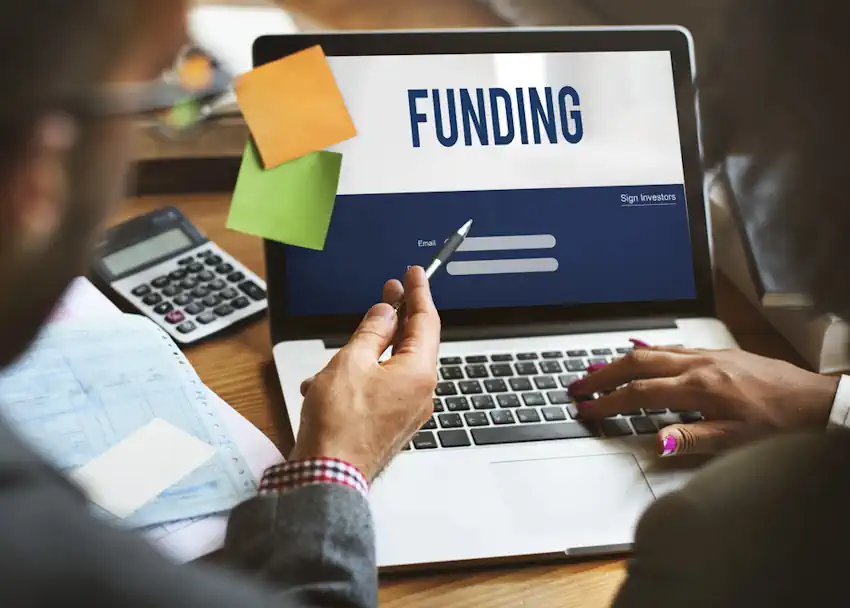Want to help organizations make their dreams a reality while building a flexible freelance career? Grant proposal writing offers a valuable opportunity to leverage your writing and research skills to help nonprofits, educational institutions, and businesses secure critical funding. This guide will walk you through everything you need to know to launch and grow your grant writing business.
Understanding Client Needs
By offering freelance grant proposal writing services, you help organizations secure the funding they need to support their programs, research, or initiatives. Many nonprofits, educational institutions, and small businesses struggle to write compelling grant proposals that effectively communicate their goals and align with funders’ priorities.
Your expertise allows these organizations to present their needs in a professional, well-structured way, increasing their chances of winning the grant. By managing the research, writing, and submission process, you help clients focus on delivering their programs while you handle the technical aspects of securing the funding they need.
Your process begins by thoroughly understanding the client’s project, its goals, and how it aligns with the potential grant opportunities. You’ll work closely with the client to gather all relevant information about the project, including its objectives, target audience, timeline, and expected outcomes.
You’ll also explore the organization’s history, mission, and past successes to highlight how they are well-positioned to achieve their project goals. This in-depth understanding allows you to craft a proposal that clearly communicates why the project is important and why it deserves funding.
Research and Opportunity Identification
Once you have the necessary information, you’ll conduct research to identify potential funding opportunities. This includes finding grants that align with the client’s mission and the specific goals of their project.
You’ll review grant databases, government funding opportunities, and private foundations to find the most suitable opportunities. During this phase, you’ll also carefully review each grant’s guidelines, eligibility requirements, and deadlines to ensure that the client meets the criteria and that the project aligns with the funder’s priorities.
Crafting the Problem Statement
With the funding opportunity identified, you’ll begin drafting the proposal. A successful grant proposal needs to clearly outline the problem or need that the client’s project addresses.
You’ll start by crafting a compelling problem statement, highlighting the importance of the project and why it matters in the broader context. This section will focus on providing evidence, such as statistics or research, to show the significance of the problem and why the client’s project is a necessary solution. By establishing a clear, well-supported need, you help demonstrate the project’s relevance to the funder.
Project Description and Implementation
Next, you’ll write a detailed description of the project, outlining its goals, methods, and expected outcomes. This section needs to be specific and well-structured, showing exactly how the project will be implemented and what impact it will have.
You’ll break the project down into actionable steps or phases, with a clear timeline and milestones. By demonstrating that the project is well-planned and feasible, you reassure funders that the client has the capacity to carry it out successfully. You’ll also emphasize the measurable outcomes the project aims to achieve, making it clear how the grant will be used to drive tangible results.
Budget Development
Budget development is a critical part of grant proposal writing. You’ll work with the client to create a detailed budget that shows how the grant funds will be used. This includes itemizing costs such as personnel, equipment, materials, travel, and other expenses related to the project.
The budget needs to be realistic and align with the project’s goals, clearly showing how each expense contributes to the project’s success. You’ll ensure that the budget is transparent and well-justified, making it easy for the funder to understand where the money will go and how it will be managed.
Supporting Documentation
In addition to the project description and budget, many grant proposals require supporting documentation. You’ll assist the client in gathering and organizing any required attachments, such as organizational financial statements, letters of support from partners, or resumes of key staff members.
Ensuring that all supporting documents are complete and aligned with the proposal strengthens the application and shows that the organization is well-prepared to manage the grant.
Aligning with Funder Priorities
One of the most important parts of the proposal is aligning it with the funder’s priorities. You’ll carefully tailor the language and framing of the proposal to reflect the funder’s mission, goals, and values.
This involves highlighting how the client’s project aligns with the funder’s objectives and demonstrating that the project fits within their funding focus. By showing that the client understands the funder’s goals and has designed a project that contributes to those goals, you increase the chances of a successful outcome.
Editing and Refinement
Editing and refining the proposal are crucial steps in the process. You’ll review the draft to ensure that it is clear, concise, and free of errors. This includes tightening the language, removing jargon, and ensuring that each section flows logically.
The proposal needs to be both persuasive and professional, so you’ll focus on making the writing compelling while adhering to the funder’s guidelines regarding length, format, and structure. Ensuring that the proposal is polished and well-written increases its likelihood of standing out in a competitive field.

Submission Management
Once the proposal is finalized, you’ll handle the submission process. This includes formatting the proposal according to the funder’s guidelines, whether they require a digital submission through an online portal or a physical copy.
You’ll also ensure that all required attachments are included and that the application is submitted well before the deadline. Managing the submission process helps avoid any technical issues or missing documentation, ensuring that the proposal reaches the funder in a timely and professional manner.
Post-Submission Support
After the proposal is submitted, you’ll continue to provide support by tracking the application’s status and following up if necessary. If the client receives the grant, you can assist with any required reporting, ensuring that they meet the funder’s expectations for progress updates or final reports. If the proposal is not successful, you’ll review any feedback from the funder and help the client improve the proposal for future opportunities.
Service Pricing
Pricing your freelance grant proposal writing services can vary depending on the complexity of the project, the size of the grant, and the level of research and preparation required.
Some clients may need a single proposal for a specific grant, while others may require ongoing support to apply for multiple funding opportunities. Offering tiered pricing based on the scope of the proposal and the amount of work involved allows you to cater to different types of clients, from small nonprofits to larger institutions with extensive grant-seeking needs.
Marketing Your Services
Marketing your grant proposal writing services requires showcasing your ability to help organizations secure funding. Sharing case studies or success stories of past clients who have won grants with your help can demonstrate the value of your services.
You can promote your services on freelance platforms, such as LinkedIn, and by networking with nonprofits, educational institutions, and small businesses that regularly seek grant funding. As your reputation for delivering successful proposals grows, word-of-mouth referrals will become a powerful tool for attracting new clients.
Is Grant Writing the Right Career Path for You?
Grant writing combines creativity with analytical thinking and requires a unique set of skills and interests. This career might be perfect for you if:
- You have exceptional writing skills and can craft compelling narratives that tell a story while presenting facts and data effectively
- You enjoy digging deeply into research and can quickly understand complex topics across different fields
- You’re detail-oriented and methodical in your approach to projects, with the ability to follow precise guidelines and requirements
- You find satisfaction in helping organizations make a positive impact in their communities through funded projects
- You excel at breaking down complex ideas into clear, accessible language that anyone can understand
- You’re comfortable working with numbers and can create detailed budgets that align with project goals
- You thrive on deadlines and can manage multiple projects while maintaining high-quality standards
- You enjoy collaborative work and can effectively communicate with diverse stakeholders to gather necessary information
Starting Your Grant Writing Journey
If grant writing aligns with your skills and interests, here are the essential first steps to launch your career:
- Study successful grant proposals to understand their structure and style. Many funded proposals are available in public databases or through nonprofit organizations
- Take online courses specifically focused on grant writing to learn the fundamentals of proposal development, budgeting, and funding research
- Familiarize yourself with major grant databases and funding sources, such as Grants.gov, Foundation Directory Online, and state-specific grant portals
- Volunteer to write grant proposals for local nonprofits to gain practical experience and build your portfolio. Many small organizations welcome volunteer grant writers
- Create a system for tracking grant deadlines, requirements, and submission guidelines. Tools like Excel or project management software can help organize this information
- Build relationships with local nonprofit organizations through networking events, professional associations, or volunteer work to understand their funding needs
- Develop templates for common proposal sections like organizational backgrounds, needs statements, and evaluation plans to streamline your writing process
- Start collecting relevant data and research about common community needs and evidence-based solutions that you can reference in future proposals
Build a Meaningful Career in Grant Writing
Offering freelance grant proposal writing services is a highly valuable and flexible opportunity. You help clients secure the funding they need to support their projects, from nonprofit initiatives to research programs. It is more than just a business opportunity – it’s a chance to make a real difference while building a rewarding career.
By handling the research, writing, and submission process, you allow organizations to focus on their mission while you manage the complex task of writing a winning proposal. This makes grant proposal writing a profitable and scalable freelance business that allows you to support a wide range of clients across different sectors.
As funding needs continue to grow across all sectors, skilled grant writers are increasingly in demand. Whether you’re drawn to supporting educational initiatives, community programs, research projects, or innovative solutions, grant writing offers a fulfilling path that combines professional growth with meaningful impact. Your expertise can help turn possibilities into realities, one proposal at a time.




